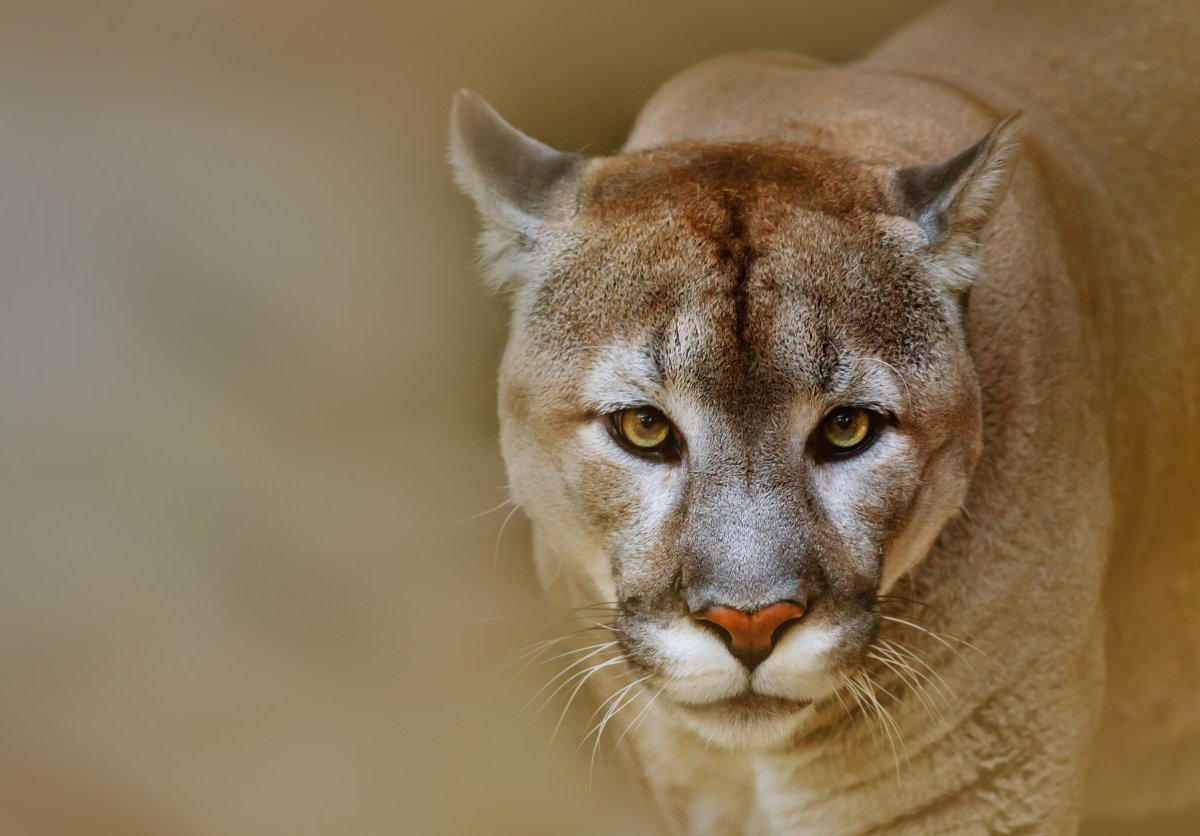A mountain lion attacked and snatched away a family dog in Idaho last Thursday evening, according to wildlife officials.
The family and their small dogs were visiting a hot spring about 17 miles east of Carey in the south of the state, the Idaho Department of Fish and Game said in a statement.
While the family were sitting in the spring, a mountain lion "grabbed" one of the dogs and took it away. The pet was never found.
The department is warning people in the area to be "vigilant" and "aware of their surroundings," particularly during the early morning and evening hours when mountain lions tend to be most active.
Although mountain lions usually try to avoid contact with humans, they are sometimes attracted to small pets, which they may perceive to be prey.
"Mountain lions are opportunistic predators, meaning they don't know when their next meal will happen, and will often attempt to take prey when it presents itself," the department said.
The agency recommends keeping pets on a leash in areas where mountain lions live. It also advises pet owners to keep an eye on their animals' behavior because they may be able to sense a mountain lion first.
Mountain lions (Puma concolor) are a large cat species native to the Americas, with a range stretching from Canada's Yukon Territory to the Strait of Magellan in the south. In the U.S., they are mostly found in 14 western states, inhabiting environments including mountains, forests, deserts and wetlands.
These large cats—which are also commonly referred to as cougars, pumas, panthers or catamounts—vary significantly in size depending on where they are found. Mountain lions closer to the poles tend to be larger than those living near the equator.
But in general, males tend to weigh between 115 and 220 pounds and females weigh between 64 and 141 pounds, according to the National Wildlife Federation.
The tan-colored cats are stealthy predators that like to hunt at night, usually preying on deer. But they will also eat other mammals—such as coyotes, raccoon, rodents, elk, feral hogs and porcupines.
Human encounters with mountain lions are rare, and the chances of an attack are extremely small, but wildlife authorities urge people to be alert in mountain lion country.
If you do spot a mountain lion close to you, the department recommends never running away from or turning your back on the animal.
"The lion's instinct is to chase and ultimately catch what they perceive as a potential prey. Always face them while making yourself look as large as you can. Yell loudly, but don't scream. A high-pitched scream may mimic the sound of a wounded animal," the agency said.
The best approach is to back away slowly from the mountain lion while maintaining eye contact. In the rare event that you are attacked, you should fight back, officials say.

Uncommon Knowledge
Newsweek is committed to challenging conventional wisdom and finding connections in the search for common ground.
Newsweek is committed to challenging conventional wisdom and finding connections in the search for common ground.
About the writer
Aristos is a Newsweek science reporter with the London, U.K., bureau. He reports on science and health topics, including; animal, ... Read more





